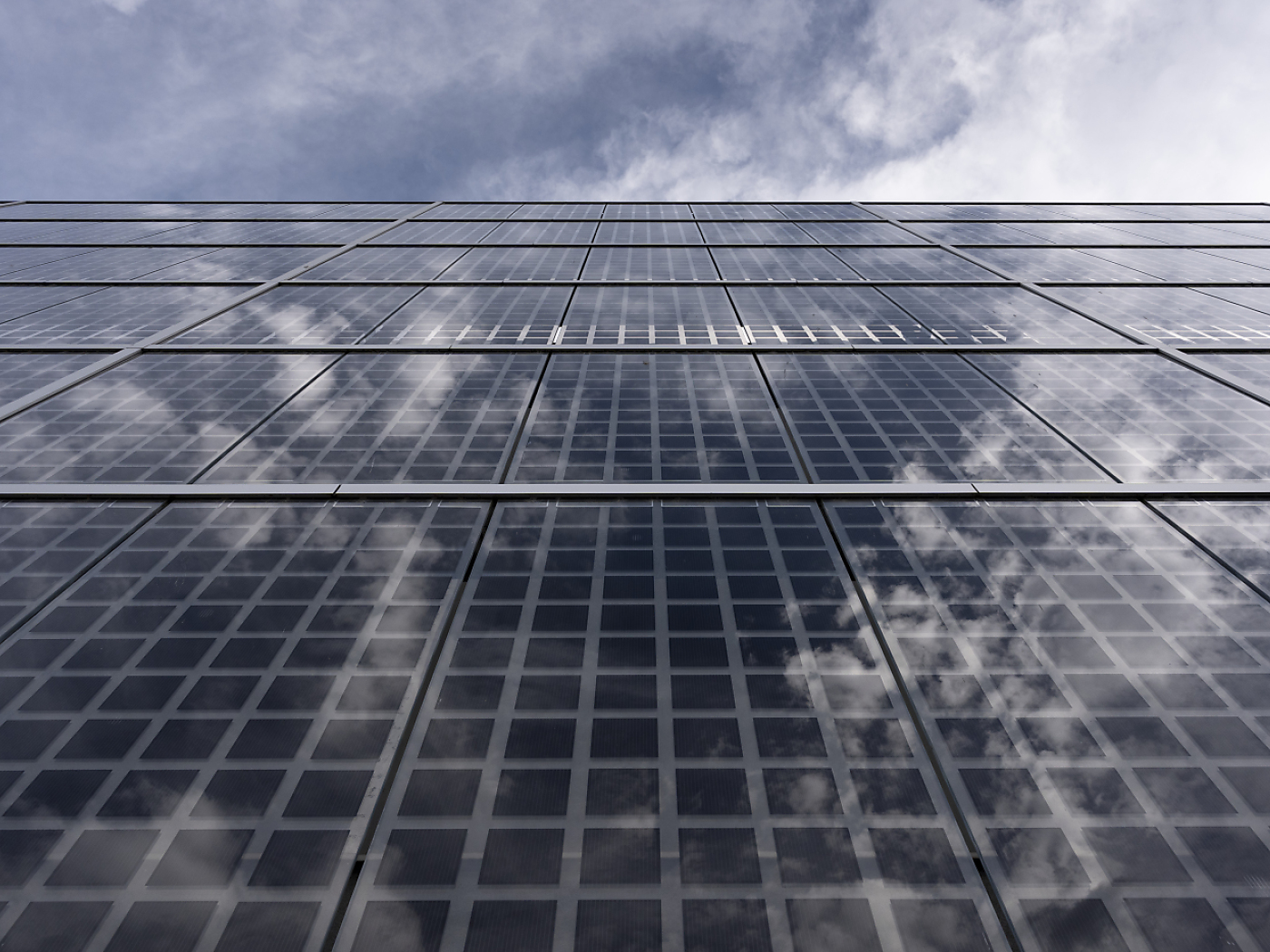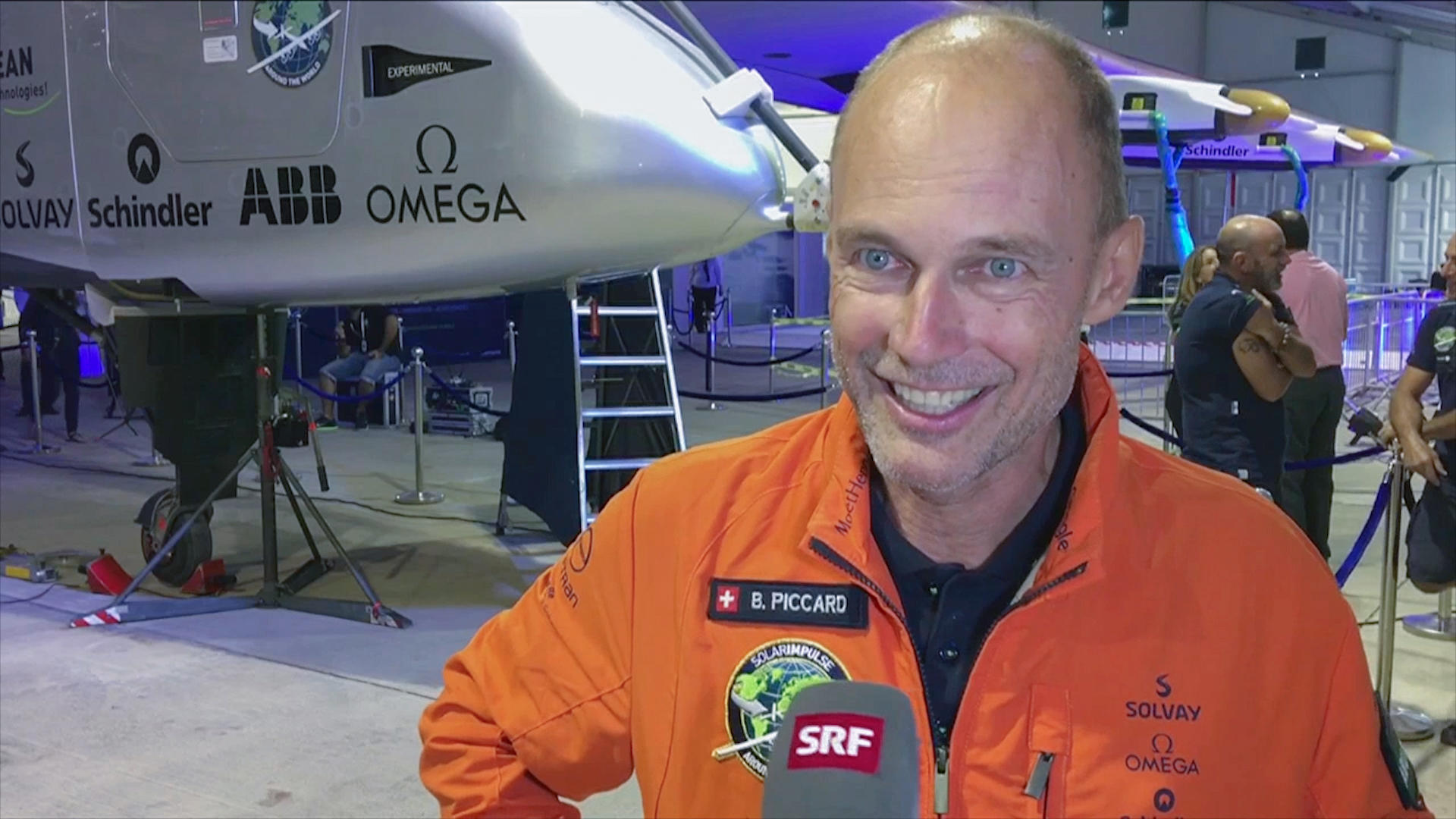Prime Energy bankruptcy: false promises and Bertrand Piccard’s fees

Hundreds of savers in French-speaking Switzerland were seduced by the photovoltaic investment promised by the now bankrupt company Prime Energy Cleantech. An investigation has revealed that a sixth of their money actually went into property.
The Mise au Point programme on Swiss public television, RTS, also reveals the fees of adventurer and environmentalist Bertrand Piccard, the company’s ambassador for almost ten years: CHF100,000 ($113,000) a year, as well as shares in the company.
Bankruptcy struck like a bolt of lightning in an otherwise cloudless sky. Since 2011, Prime Energy Cleantech (PEC) had had all the makings of a success story. Its credo: credible, reliable and profitable renewable energies. It sold green bonds to private individuals to finance the installation of photovoltaic power plants in Switzerland and Europe.
In total, it raised some CHF122 million from around 2,000 investors, mainly in French-speaking Switzerland, some of whom invested a large part of their retirement in the company, reassured in particular by the presence of Piccard in the venture and the label awarded by his foundation, Solar Impulse.
But in October, against all expectations, the dividends stopped coming in. The company’s management informed its customers of a liquidity crisis. Bankruptcy proceedings were opened, threatening to take investors’ savings with them.
Fingers were soon pointed at one man: PEC’s founder and majority shareholder, Laurin Fäh. He was accused by Piccard and others of having emptied the company’s coffers.

More
Swiss criminal complaint reportedly filed against Prime Energy Cleantech
Interviewed on Mise au Point, the Basel businessman now denies any responsibility. “I have nothing to reproach myself for,” he said. “Stupidity is not punishable by law.” What Fäh calls stupidity is in fact a loan of CHF19.5 million that he took out with his own company, PEC, with the aim of injecting it into another of his companies, Bargella SA. This loan has not yet been repaid.
Suspicious loan
For Maximilien Roche, an integrity and investigation consultant, this flow of money to the owner of the company is far from trivial. “It’s a very, very large sum. And it’s a loan from a company to an individual, who is going to pass this money on to another company. It’s a fairly indirect chain of money transfer. And the more intermediaries you create, the more opportunities you create for defaulting on payments and therefore finding yourself in a situation of bankruptcy,” he said.
Fäh claims to have invested this money for the benefit of PEC alone. “We invested in a company in Luxembourg specialising in the construction of new buildings and flats for immediate sale, with very, very good margins,” he explained.
Some CHF19.5 million of the CHF122 million raised from investors therefore went into property, contrary to the company’s promises. Before it was deactivated, the PEC website stated that the investments would be “entirely dedicated to the development of solar power plants”.
However, Fäh denies having misled his creditors. “It’s dangerous to put all the money into solar power,” he said, explaining that solar power is “more complicated to sell than real estate”. On the other hand, real estate allows you to earn more. “Real estate is worth a lot more than solar,” he said.
He added that climate change had had a negative impact on the value of photovoltaic production. “Contrary to what we might have imagined, we’ve had more rain and less sun,” he said.
The economic model in question
If the loan taken out by PEC’s owner triggered the company’s bankruptcy, another question now arises: how long did the company’s directors know that the company was in difficulty, and how far did they dig the hole by continuing to sell shares? Looking through the company’s accounting documents, Maximilien Roche noticed a detail that might indicate that “the problems had been there for a while”.
“We don’t have a balance sheet closed at December 31, 2023. We have one for December 31, 2022, and the next one is for June 30, 2024,” he said.
“What prevented [the December 2023 balance sheet] from closing? Was it already a liquidity problem?” asks Roche, who believes that “if the company was already condemned in 2022 or 2023, but continued not only to operate, but also to raise funds, that is controversial”.
Bertrand Piccard informed since March
Contacted by RTS, Prime Energy’s CEO and chairman of the board, Khalid Belgmimi, declined to answer these questions. As for Bertrand Piccard, the company’s image bearer, what did he know about the debacle?

More
Solar Impulse adventurer Bertrand Piccard: ‘We did it!’
Since 2015, Piccard has extolled the virtues of Prime Energy for a fee. On October 30, at an investor crisis session in Geneva, he too declared that he had been cheated. “We are at a disastrous moment. I too am an investor. I learnt of the bankruptcy at the same time as you,” he said. He added that his sponsorship agreement gave him no access to the management or administration of the company.
On Monday, however, the Tribune de Genève revealed that Piccard had been informed of the company’s problems as long ago as March. It was then that his ambassadorial contract was terminated.
The question remains: how much has Piccard been paid since 2015 for his role as image-bearer? According to confidential documents that RTS has been able to consult, he would have been paid CHF100,000 a year. As well as several hundred thousand francs in shares and bonds in the company. When contacted, he did not wish to comment on these amounts, believing that this was a private matter.
Translated from French by DeepL/ts

In compliance with the JTI standards
More: SWI swissinfo.ch certified by the Journalism Trust Initiative
You can find an overview of ongoing debates with our journalists here . Please join us!
If you want to start a conversation about a topic raised in this article or want to report factual errors, email us at english@swissinfo.ch.